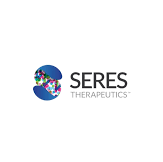Article
SER-109 Reduces Recurrence of C Difficile Infections
Author(s):
Approximately 88% of patients treated with SER-109 achieved a sustained clinical response at 8 weeks.

An investigational therapy for recurrent Clostridioides difficile infections (CDI) ultimately cut the absolute risk of recurrence by 27% in comparison to placebo.
New data presented during the 2021 American College of Gastroenterology (ACG) Annual Meeting on SER-109, developed by Seres Therapeutics, shows the investigational oral microbiome therapeutic reduces the risk of recurrence, even in high risk patients, including those taking acid-reducing medications like proton pump inhibitors (PPIs) and H2 blockers, which account for 40.7% of patients.
The data presented comes from the multicenter, randomized, placebo-controlled phase 3 ECOSPOR III trial where topline data showed SER-109 was superior to placebo in reducing CDI recurrence at 8 weeks to achieve the primary efficacy endpoint. The treatment resulted in a sustained clinical response rate of approximately 88% at 8 weeks following treatment and a 27% absolute reduction of recurrence of CDI, which is a relative risk reduction of 68%.
Previously, the company presented 24 week clinical data that shows SER-109 significantly reduced recurrence compared to placebo over 24 weeks (21% vs. 47%).
The treatment was also well-tolerated, with no treatment-related serious events observed, as well as an adverse event profile comparable to placebo.
“Those living with gastrointestinal issues are faced with limited treatment options to help address some of the debilitating symptoms they face each day. While many turn to acid-reducing medicines, previous studies have shown that this can result in a higher risk of recurrent C. difficile infection,” said Lisa von Moltke, MD, Chief Medical Officer at Seres, in a statement. “We were pleased to see that with the administration of SER-109, subjects in the study experienced a lower CDI recurrence rate regardless of their risk factors, including the use of acid-reducing medications—a highly prevalent characteristic in this study population.”
Seres expects to complete both phase 3 studies and the pending open-label study database before filing a Biologics License Application (BLA) with the US Food and Drug Administration (FDA) in mid-2022.




